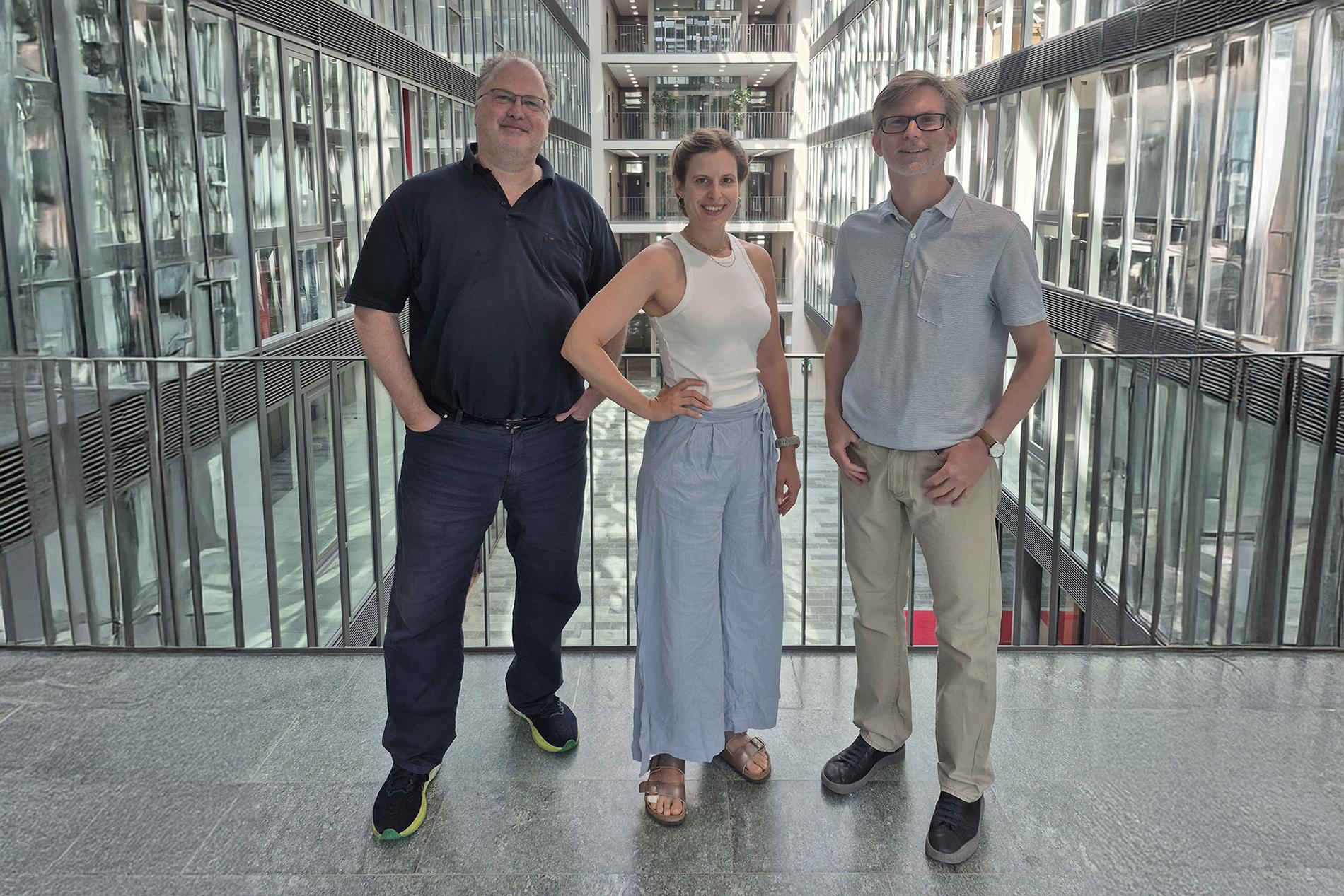Sorting out what's real and what's not – AI and the media in schools

Young people are increasingly exposed to content produced by artificial intelligence. However, they need to be able to identify and analyse it. This is what the project that has won the 2025 Optimus Agora Award aims to achieve.
Artificial intelligence needs no introduction. It is everywhere today, particularly on social media, where it contributes to the creation and propagation of fake news and deepfakes (videos, images, sounds or texts created and manipulated using AI) – content that spreads more widely and generates more engagement than factual and truthful information. Every day, more and more young users see these publications and do not necessarily have the skills to identify and question them.
The solution? Make learning about AI and the media part of school curricula. This is the aim of the "All fake - or what?" project, which has won the 2025 Optimus Agora Prize. It is led by Linards Udris, Jens Lucht and Rebekka Rieser (fög, University of Zurich) as well as Gerold Brägger (IQES).
Starting this autumn, teachers in German-speaking Switzerland will be able to use the teaching materials available on the Check News platform. It will reach 1,300 schools in Switzerland and 9,000 in the DACH region (Germany, Austria and Switzerland). Students will be able to critically analyse the quality of various media (journalistic content, social networks), misinformation and the use and importance of AI in the media and society.
Interview with Jens Lucht, Head of Media Competence at fög who is in charge of the Check News platform.
How did the project come about?
There is a huge gap today between what is taught in school textbooks and the world in which we live. As part of a previous Agora project, we had already launched the Check News platform in collaboration with the organisation IQES. This platform provided teachers in German-speaking Switzerland with teaching materials on the media, with topics such as how journalists work, how do I get my news, journalism under pressure, etc. The project was very successful, and we received many requests from schools asking us to offer something similar, but this time on the subject of artificial intelligence. We will therefore reuse the Check News platform and will start publish teaching materials on AI there in autumn 2025. The content will be freely accessible to everyone. Students will be able to consult it both in and outside school, as will their parents.
Whom are these materials intended for?
The documents are aimed at students aged 12 to 19, with different levels of difficulty, ranging from 1 to 3, depending on age.
Will the teaching materials only be available in German?
Yes. We could have translated them into French, but unfortunately we don't have a platform for distribution in French-speaking Switzerland, which is why we concentrated on German-speaking Switzerland. As the content is in German, it can also be used in other German-speaking countries.
The field of AI is evolving very quickly – how will you ensure that the teaching materials do not become obsolete?
We will update them every three to six months. We will also take feedback from teachers and students into account in order to continuously improve the teaching materials. In addition, we will provide information sheets and webinars. These are videos produced in collaboration with journalists from leading Swiss media outlets. The webinars will cover topics such as the opportunities and risks of AI, deepfakes and AI in journalism.
What is the long-term goal of this project?
We would like this project to become permanent. Our funding from the Swiss National Science Foundation via Agora will run until 2026, and we will receive support from other foundations until summer 2028. If the project is no longer funded, the platform will remain accessible but its content will no longer be updated. We would also like to appeal to Swiss policy-makers to ensure that media education is fully integrated as a compulsory subject into school curricula. This is already the case in certain regions of Germany.